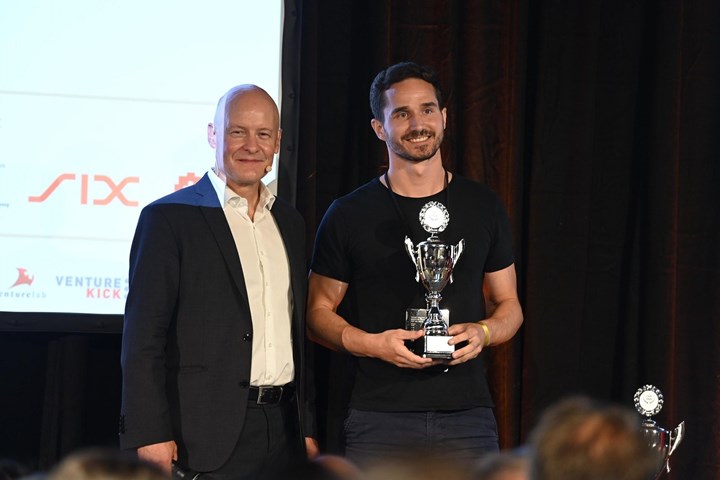9T Labs recognized as a Swiss Top 100 Startup company
9T Labs has been awarded third place in the 2021 Swiss Top 100 Startups competition for its hybrid 3D printing technology, which combines 3D printing with compression molding in matched metal dies.
9T Labs AG (Zürich, Switzerland) has been awarded third place on the 2021 Swiss Top 100 Startups list of innovative and promising Swiss startups. The competition has been organized since 2011 by Venturelab AB (Zürich, Switzerland) and winning companies will receive training courses, business support services and help connecting with investors.
According to the judges of the competition, “9T Labs’ all-in-one hardware, software and material solution provides customers with an inexpensive and easy way to design and mass-produce ultra-lightweight parts in areas such as the medical industry, aerospace and automotive markets.”
9T Labs’ hybrid 3D printing technology enables high-performance structural parts — in small-to-medium size and thick sections — to be produced in carbon fiber-reinforced thermoplastic composites in production volumes ranging from 100 to 10,000 parts/year. The company says that by combining 3D printing with compression molding in matched metal dies, its hybrid production system offers the best of both additive and conventional/subtractive manufacturing.
The company’s patented Red Series Additive Fusion Solution platform consists of a Build Module (3D printer providing fiber layup and preform production) and a Fusion Module (compact compression press providing preform consolidation and final part forming). The hardware is supported by 9T Labs’ Fibrify design suite, which enables CAD files to be imported, part design and fiber layups optimized, then moved into major commercial structural analysis programs to verify structural performance. This eliminates the costly and time-consuming cycle of designing parts, producing and testing prototypes and further modifying designs to more closely meet performance and cost targets.
According to 9T Labs, its system can provide unmatched levels of complexity in advanced thermoplastic composites, from initial prototyping to high-volume manufacturing. Since the thermoplastic matrices may be melt reprocessed, scrap material and parts can be recycled, and multiple 3D-printed subassemblies can be welded together during the Fusion step.
Related Content
-
The lessons behind OceanGate
Carbon fiber composites faced much criticism in the wake of the OceanGate submersible accident. CW’s publisher Jeff Sloan explains that it’s not that simple.
-
Bio-based acrylonitrile for carbon fiber manufacture
The quest for a sustainable source of acrylonitrile for carbon fiber manufacture has made the leap from the lab to the market.
-
TU Munich develops cuboidal conformable tanks using carbon fiber composites for increased hydrogen storage
Flat tank enabling standard platform for BEV and FCEV uses thermoplastic and thermoset composites, overwrapped skeleton design in pursuit of 25% more H2 storage.
















